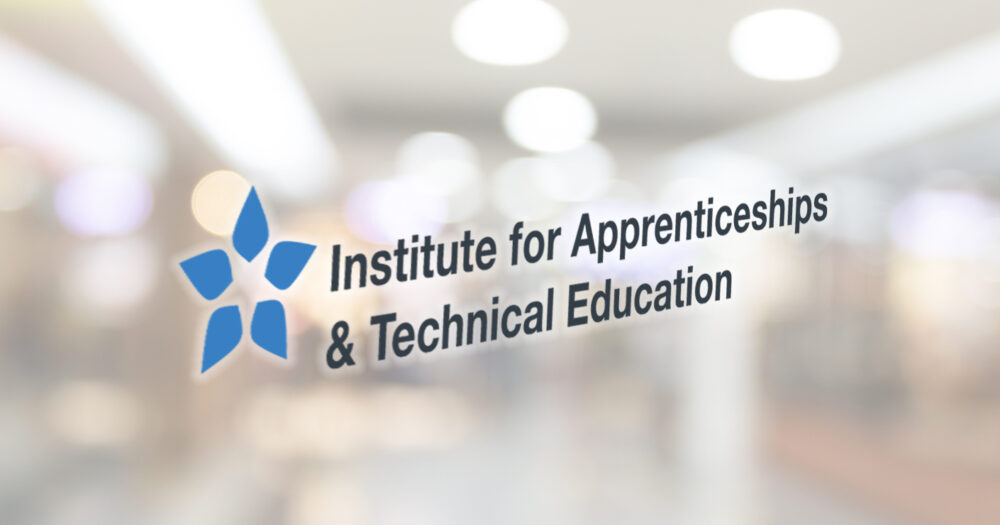The Institute for Apprenticeships and Technical Education has today published its annual accounts for 2018/19.
This is only the second year of the institute’s existence and the report comes shortly after it took on responsibility for T-levels.
Here are six things we learned from the accounts.
- Staff headcount has increased to nearly 150
The number of full-time staff at IfATE has risen to 146, from 89 in 2017/18; an increase of 64 per cent.
The majority of this increase came from recruiting 34 staff members to work on T-levels, which IfATE took over in January and which are expected to be introduced next year.
- Sir Gerry received a bonus of up to £15,000
The institute’s chief executive Sir Gerry Berragan was unsurprisingly the highest-paid employee, receiving between £140,000 and £145,000 as a salary. He also received a bonus of between £10,000 and £15,000.
The reason for having a range for the figures is that bonuses are reported in £5,000 brackets, so a more accurate total is not possible.
The accounts do not show any other employees received a bonus.
Berragan is due to be replaced in November once his two-year contract expires, with the ESFA’s director of professional and technical education Jennifer Coupland.
Several board members received fees of between £10,000 and £15,000; though not the chair, Antony Jenkins, who volunteered for his remuneration to be reduced to a maximum of £5,000, from the £5,000 to £10,000 range it was in in 2017/18.
- £152,000 was paid out in exit packages
A total of two exit packages, both in the range of £50,000 to £100,000, were handed out by the institute in 2018/19.
The total amount spent on such packages was £152,000 – none of which was spent following compulsory redundancies.
- IfATE exceeded their own target for signing off standards
IfATE approved 424 apprenticeship standards in 2018/19, besting their target of 400 – whereas in April 2018, only 257 it had signed off on.
Berragan attributed this increase in the number of standards to its “Faster and Better” approach.
- Most of the appeals to IfATE were about funding bands
One of the most controversial undertakings of IfATE has been the funding band reviews – investigations to determine the most appropriate cost of delivering an apprenticeship standard, two waves of which have been ordered by skills minister Anne Milton.
Employers and providers have been outraged when these reviews have led to cuts in funding for particular standards, such as the level 6 chartered manager standard.
So much so, the IfATE promised a review of their impact in May.
According to the report, IfATE received a total of 37 appeals in 2018/19 – 35 of which were about funding band recommendations.
Only 10 of these appeals were upheld, the remaining 25 were either rejected or deemed “not in scope”.
The other two appeals were about the development of the standards, neither of which were upheld.
- Quality of apprenticeships and T-levels is ‘at risk’
According to IfATE’s performance analysis, there is “some risk to the delivery” of apprenticeship and T-level quality.
This is because the institute aimed to have external quality assurance for all standards with active apprentices, and although the report says “good progress” has been made towards this goal, nearly ten per cent of apprentices who started in the last 12 months do not have EQA providers in place.
Three per cent have a provider in principle and Open Awards has been contracted to provide EQA for all standards where no provider has been assigned.
IfATE has “developed robust contractual requirements for the T-level awarding organisations that we procure”, but agreement on a quality assurance framework for the new qualification is “ongoing”.
Both programmes have been given amber ratings for quality.









Your thoughts